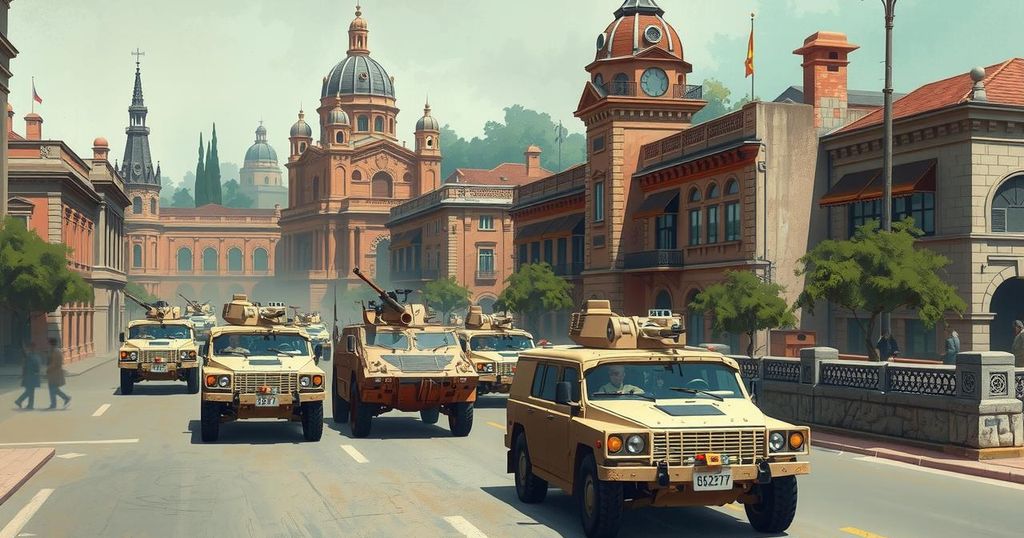Sudan Military’s Advances in Khartoum Amid Ongoing Conflict with RSF

Sudan’s military has recaptured key sites in Khartoum, including the presidential palace, as part of a push against the Rapid Support Forces (RSF). Despite territorial gains, the country remains divided, with significant violence and civilian casualties reported in Darfur. Military leaders assert ongoing pressure against RSF, but analysts indicate that the conflict is far from resolved.
On Saturday, Sudan’s military announced its advances in central Khartoum, having retaken several key buildings from paramilitary control, including the presidential palace. Army chief Abdel Fattah al-Burhan declared a commitment to “full liberation” following the military’s recent offensive, as spokesperson Nabil Abdallah highlighted the ongoing pressure on the Rapid Support Forces (RSF) throughout the city. Key locations reclaimed include the Central Bank, state intelligence headquarters, and the Sudan National Museum.
Despite these military gains in the capital, Sudan remains largely divided, with the army controlling the eastern and northern regions, while the RSF governs almost all of Darfur and parts of the south. Activists reported significant civilian casualties from a paramilitary assault in North Darfur, far from the capital, indicating the broader impact of the ongoing conflict.
In the initial chaos after hostilities began in April 2023, RSF forces overran crucial national institutions in central Khartoum. An RSF source acknowledged a withdrawal from certain locations but emphasized that the conflict is not yet settled, describing their forces as engaged in a fierce battle near the airport—a site that has suffered extensive damage from prolonged fighting.
After Friday’s retaking of the presidential palace, RSF retaliated with a drone strike resulting in multiple fatalities. This palace had been utilized by RSF to shelter elite troops and stockpile arms, with damages visible in photographs revealing the extensive battle destruction. The military’s control over significant portions of the city may solidify its governance of greater Khartoum but is unlikely to conclude the conflict.
The military has secured strategic positions along the Blue Nile and established a supply route across the White Nile, enhancing its control over the area. The conflict, ongoing since April 2023, involves army chief Abdel Fattah al-Burhan fighting against the RSF led by former deputy Mohamed Hamdan Daglo, revealing a long-standing rivalry between the two factions.
In a recent video, Burhan highlighted the army’s determination, asserting that “the battle is not over” as the military continues its campaign. Although the army claims progress, analysts warn that regaining control over Khartoum does not necessarily mean the war is concluded, given the ongoing violence and human costs involved.
As the RSF strives to fortify its position in Darfur amid renewed pressures, the humanitarian toll continues to rise. Reports from North Darfur indicated numerous civilian casualties due to RSF actions, underscoring the conflict’s devastating effects on the population.
In summary, the Sudanese military’s recent advances in Khartoum signify a shift in control within the capital, yet the humanitarian crisis persists unabated across the nation. Despite significant military achievements, observers caution that the conflict will endure, highlighting the ongoing violence, the split control of the country, and the tragic toll on civilian populations. The resilience of the RSF within Darfur and the military’s challenges may extend this conflict further, fraught with human suffering and instability.
Original Source: www.kulr8.com








